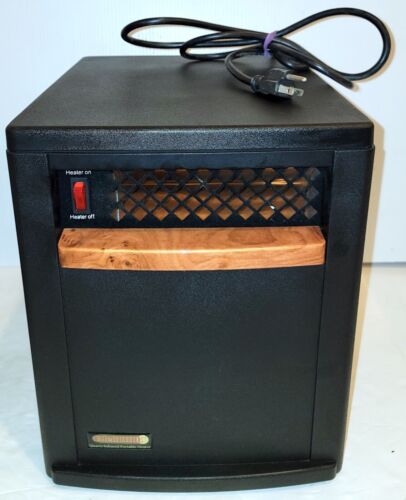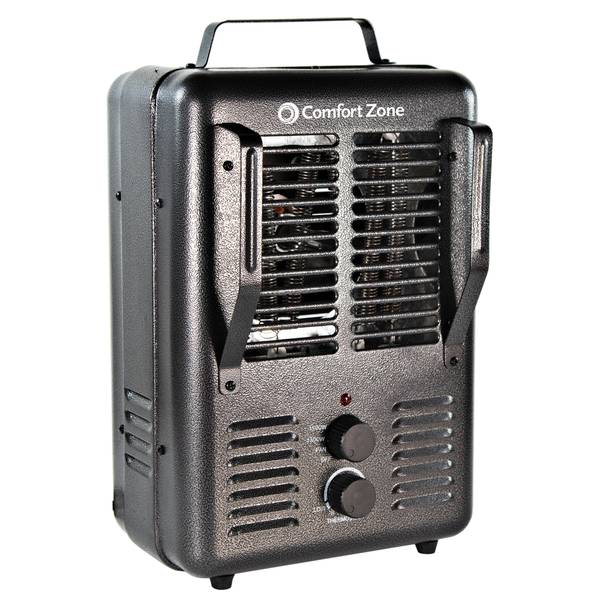 Frugal Tip on space heaters/Off-Peak power.
Frugal Tip on space heaters/Off-Peak power.
Yesterday it was -28F outside when I got out of bed. Got me to thinking about how many people are being misled about using space heaters and how much money they can save using a small space heater instead of the main furnace.
Typical example, I had a relative buy a $400 Eden Pure heater because he was convinced that it was going to save him money over burning his natural gas furnace.
I mean, the Eden Pure heater he bought had nice wood covering and was like a work of art. But he was disappointed to discover that his electric bill went through the roof.
So, here are some things you need to consider before you buy any electric space heater.
When they say their space heater will save you money, read the fine print, because that statement is based off you closing down all the rooms in your house that you don't need to fully heat. That spare bedroom and bathroom, shut the furnace vents and close the doors. Rooms that you hardly use in the winter, ditto. Essentially, you are expected to close up about half the house and only heat the rooms you need.
Well, you can save money by doing all that with your main furnace. Nothing stopping you from closing the vents and doors to those rooms in the winter that you don't need to fully heat. You will save all that money AND you did not have to buy an expensive space heater.
Next thing, electric heaters are, more or less, 100% efficient in converting electricity to heat. If you have a $400 Eden Pure heater that has a maximum of 1500 watts, it is no better, in terms of heat, than a $20 milk house heater that has 1500 watts!
OK, so a milk house heater is not a piece of art, but it will turn 1500 watts of electricity to heat just the same as the $400 heaters.
Next thing to consider is that most space heaters are designed to plug into the regular wall socket 120v system. Where I live, the regular rate of electricity is about 12 cents per Kwh. However, I had Off-Peak electric put into my house, which runs my main electric furnace, my water heater, the air conditioner, and the dryers. Off-Peak electricity cost me about 6 cents per Kwh. Half the price of the regular rate.
So, what I did, was install a 240v in wall heater, running on Off-Peak power, for a room that I need to occasionally boost the heat.
I only turn it on when we need to heat that room, and leave it off most of the time. It has a really good fan in it and will heat the room up in about 15 minutes. Then the automatic thermostat will maintain that temperature until I shut it off.
You can save a lot of money by having your appliances running on Off-Peak power, but there are some potential disadvantages to consider. The power company has the ability to turn off your Off-Peak power whenever they need to divert more power to the regular system. So, in my case, my electric furnace has to have a backup propane tank if the Off-Peak power is turned off. That is required by law, so anyone here with an electric furnance actually has a dual source furnace with gas or propane backup.
In reality, the power company rarely turns off the Off-Peak power. We had one evening this winter where our dryer did not turn on until about 10 pm. We managed to survive. Other than that, I don't think our furnace has switched over to propane once. As to the hot water heater, well, we have a big tank and if they switched off the power to the hot water heater, you would not know it for hours and hours. The electric company is smart enough to only turn off the Off-Peak power for a short time, so the water heater is back on before we ever run out of hot water.
Finally, it is important to understand at what point it makes more sense to use Off-Peak electricity or switch over to gas or propane for heating. I got a nice price comparision chart from my electric company on the cost of electric Off-Peak heat versus gas and propane costs. Where I live, the Off-Peak electric rate has been cheaper to heat the house than propane for many years. But propane prices vary depending on where you live. It costs me the same to run the 240v in wall, Off-Peak heater, then it does the main furnace. However, I would be spending a lot more money if I used a regular 120v space heater plugged into the wall socket at twice the rate.

 I'll be going to the chiropractor next Wednesday, so I'll be "in town," and do some shopping on my way home.
I'll be going to the chiropractor next Wednesday, so I'll be "in town," and do some shopping on my way home.


 I think our longest was 4 days. Fortunately, it was May, so we weren't worried about cold. It was sometime in the 90s; we hadn't gotten our generator yet. A friend in town let us shower and fill up water jugs at her house.
I think our longest was 4 days. Fortunately, it was May, so we weren't worried about cold. It was sometime in the 90s; we hadn't gotten our generator yet. A friend in town let us shower and fill up water jugs at her house.